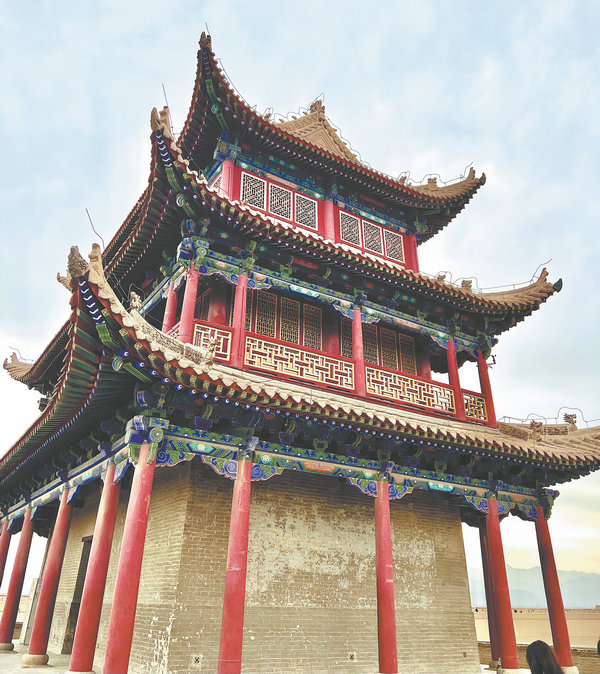

Yet another story offers a musical mystery. It says that if you use a small stone to tap a special rock that rests in a corner of the Jiayuguan Pass, it "sings" like chirping birds. This phenomenon harks back to a fairy tale about a sparrow's sorrow following her mate's death. Historical records suggest soldiers' families would strike it when they marched out to battle to wish for a safe return.
Such stories tell us how Jiayuguan's real legacy extends beyond archaeology and history to encompass the legendary and lyrical.
It's called the First Pass Under Heaven and the "end of the Great Wall". Its First Beacon Tower is also known as the "dragon's tail". Jiayuguan largely lives up to these nicknames that nod to its alpha and omega position as a sentinel shielding the far edge of the Ming-era Great Wall in the desert of today's Gansu province.
That said, such extravagant appellations are sometimes evocative misnomers that indulge in poetic license. The Overhanging Great Wall section actually slithers up a mountainside rather than protruding over the edge of a sheer cliff. And while Jiayuguan was the wall's westernmost section during the Ming Dynasty (1368-1644) — hence, the "end" — other sections extended farther afield during different periods.